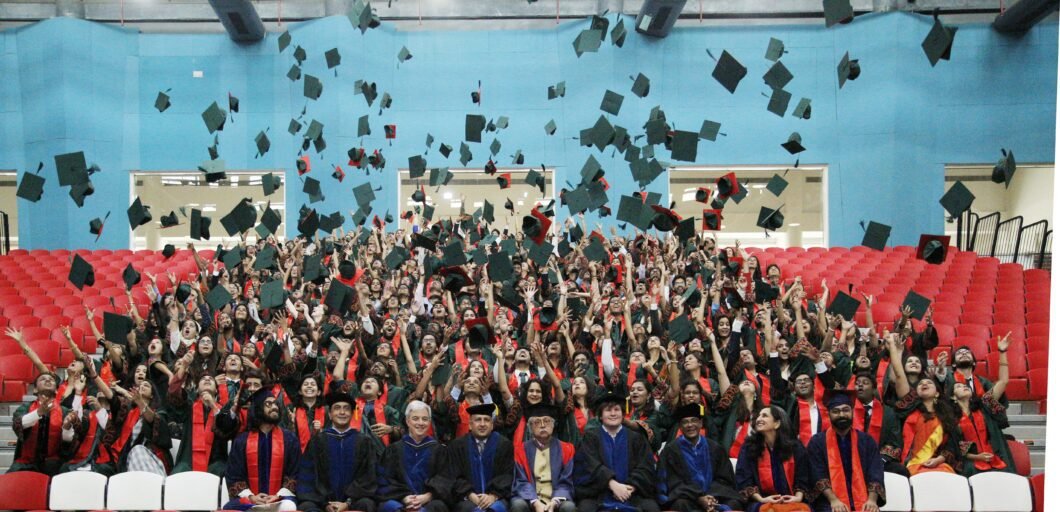There was a painful silence in the room.
I had just told my parents that I am going to pursue a Post Graduate Diploma in Liberal Studies- something they had heard for the first time, just like most people in India. I was supposed to do an MBA- at least that was what people expected from a typical engineer here.
Till then I had even followed that path- I had quit my first engineering job within 7 months and took a break to prepare for MBA exams. Sometime in the middle of that break, I broke my latest decision to my parents. Looking into their eyes, full of concern, I felt their pain.
However, I also knew if I went on a conventional path that is considered “secure”, the compounding cost of not following my heart would be more painful in the long term. When I had quit my first job to “prepare” for MBA, I already had a glimpse of that pain: the pain of spending 4 years in engineering only to realize that I dreaded being an engineer for the rest of my life.
It was because despite studying mechanical engineering for 4 years and passing with an honors degree, I felt my brain had rusted away. It was a scary realization given that I was barely 24 years old then.
In retrospect, it was the rust caused by the reaction of apathy I felt towards engineering and the experience I had in my first job. The thought of “optimizing manufacturing” or selling “mill liners” for the next 2 years, let alone the rest of my life, was horrifying, to say the least. I did not know what I wanted but I knew I did not want that.
Essentially, the phase was a pre-quarter life crisis and existential dread mixed with my daring, YOLO attitude of following your heart/passion, somewhat overtly inspired by the coming-of-age movies. I craved an adventure to break out of the conventional- something that will jolt me out of my comfort and teach me life lessons. Maybe even culminating into finding love as well (Spoiler Alert: It didn’t happen in this adventure!).
Instead of chasing the next lucrative job with a 40% increment, I wanted an experience that could expand my mind to the world of possibilities and help me explore and learn across disciplines. I was curious about what lies beyond engineering.
This is where the idea of liberal arts and a one-year program at Ashoka University (also known as Young India Fellowship (YIF)) caught hold of my attention. I still remember the excitement I had felt when I first came across the course curriculum at YIF. At that time, I felt like Harry Potter when he first came to know that he was a wizard and there was a school where they teach magic.
I was not looking for any magic potions or spells to solve the existential dread I was feeling at that time. But, I realized I was craving the adventure of a multi-disciplinary experience where fields like world history, political economy, leadership, law, cinema, Shakespeare, sociology collide with each other for the once-in-a-lifetime learning experience.
I was fully cognizant of the uncertainty in pursuing a program that offered no specific job skill or guarantee of finding a job. But I knew in my heart that this magical learning experience was worth sacrificing the so-called “security”. Moreover, it was a chance to unlearn, learn, and expand my mind which I felt was rusting.
This anticipation of unlearning and learning experience to combat intellectual rust and expand my mind was perhaps the most critical factor in my decision of pursuing liberal studies.
When I finally got my letter of acceptance, it was no less than the feeling of getting the Hogwarts letter. I had no idea of what I’d be doing after the course but that feeling told me that I had made the right decision. Little did I know, though, that the decision would not only combat the intellectual rust but also the emotional and spiritual one for a truly holistic learning experience.
The one year during which I pursued Post Graduate Diploma in Liberal Studies at Ashoka University proved to be a learning experience like no other. Of course, there were things like one usually expects- lectures, assignments, research papers, multiple clubs, activities, internships.
However, what took the learning to the next level was the peer learning that happens when you take 280 people from diverse backgrounds- engineering, business, film-making, journalism, economics, & more- and put them together with world-class professors. The conversations in the hallways could range from discussing business case studies to debates around socialism and the invisible hand in capitalism.
We were not expected to have straightforward answers to complex questions. Instead, we were taught to develop a critical thinking approach and understand the importance of context, and asking the right questions before arriving at answers.
The assignments were not about finding and using the right formula to get the right answer but about opening your mind by reading and conversations to arrive at well-thought and reasoned arguments to support your viewpoint.
Sometimes there were no right answers. So, the humility to accept that and agree to disagree with others while having mutual love and respect for each other were the only lessons learned in those times. In retrospect, I think that perhaps those are the lessons that matter the most in the world we live in at present.
Some of the most valuable lessons went beyond classrooms and academic discussions. Being an introvert since childhood, I have always found it difficult to open up to people and form meaningful connections. Imagine my plight when I was surrounded by some of the most brilliant minds in their fields and enriching conversations- some of which went swooshing above my head like deadly Bludgers in Quidditch. There were a number of times I felt like going back to my ‘cupboard under the stairs’, hiding from everyone. Sometimes I even did.
However, one realization during a class on Group Dynamics forever changed how I looked at my connections with people, especially as an introvert. The realization can be summarized like this: To be independent but not connected is nothing more than isolation. And until you embrace your imperfections and be intentionally vulnerable with people, you cannot form meaningful connections and feel a sense of belonging with any person or group.
For a long time, partly because of my introverted nature, I had believed in functioning alone and the efficiency that comes with it. I never realized that this belief severely hampered my ability to form meaningful connections. That one year shifted my perspective and made me realize how arrogant and self-centered that view is.
It did not transform me magically, though.
I still find it difficult to connect with people. But now I do not run away from it under the pretext of being an introvert.
I still secretly wish to have an Invisibility Cloak so that I can avoid conversations and disappear from parties or social gatherings. But now I have some people with whom I can talk for hours sharing my stories and listening to them.
Yes, it is still a struggle sometimes to be vulnerable and finding the courage to open yourself up to people. But I embrace that struggle now.
Even after almost 3 years of finishing that course, I am still learning these things. Sometimes I even forget this stuff until I experience another phase of isolation.
But the truth remains. Understanding and experiencing the practical implications of vulnerability, the feeling of belonging, and believing in forming long-lasting connections rather than operating alone during that one year led to a holistic learning experience that is hard to describe and measure in terms of any ROI.
Whenever I have tried to explain my reasoning behind studying liberal studies and what I learned during that one year, many people have given me quizzical looks. “So, what did you get out of it?”. They often ask me, as if the idea of learning for learning’s sake is completely nonsensical. Or as if the non-tangible lessons I took away do not matter in the real world.
I do not really blame them. I have been through the Indian education system that still “trains” kids in schools and adults in colleges for jobs that belong in the industrial era. Instead of learning to understand our unique strengths, think critically, and understand how the world works so, we can contribute better; the system rewards students by the number of answers they get right in a 3-hour examination.
I chose to study liberal arts because thankfully, I found that the spark of learning magic was still alive after being through that system.
I could not have gone through another professional course like MBA just because everyone around me was doing so or expected me to do so for ‘career growth’. I might not even get a chance to do an MBA now, both due to financial constraints and the high opportunity cost involved especially in a full-time course.
However, I do not regret it at all because that one year stoked an everlasting fire of life-long learning and curiosity within me. It has empowered me to understand myself in a better way. It has taught me that sometimes it is not about finding the right answer but about understanding the context first and asking the right questions instead. Most importantly, it has helped me make a better sense of the world and connect with the people around me in a better way.
Looking back, I am grateful I caught that magical train of learning adventure and chased my curiosity despite the uncertainty involved. Maybe that is the biggest lesson of all: the value of embracing uncertainty. Life is uncertain, after all, no matter how much we try to seek comfort and security in familiar things.
Chasing security at present could lead to unbearable pain in the future. So, why not chase our curiosities and follow our hearts especially when things are uncertain? Who knows we end up discovering and learning the magic and realizing we all have our own version of Hogwarts somewhere, where we feel at home!


